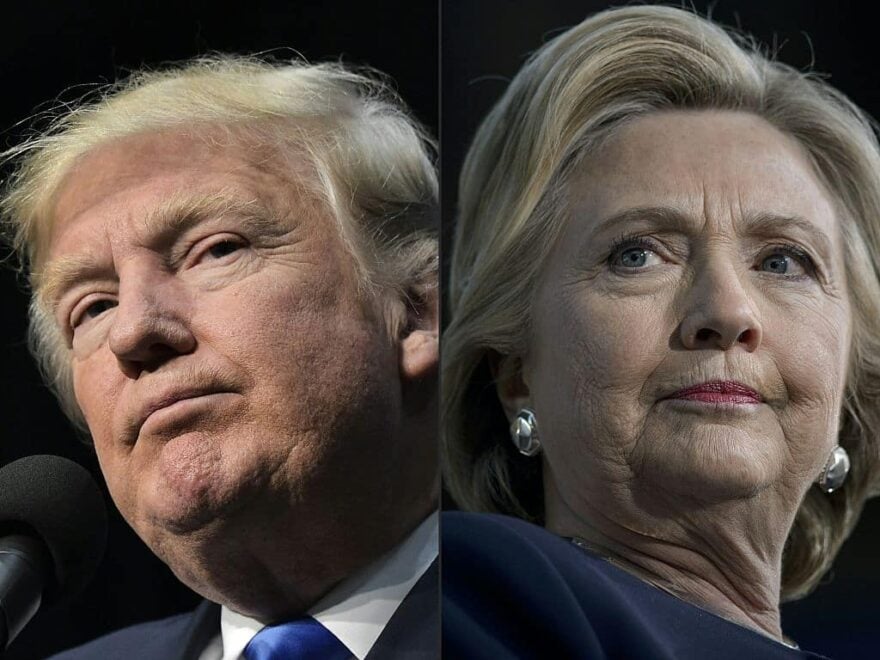Newly unearthed documents show deep state government actors once again circling the wagons to protect Bill and Hillary Clinton — and suppressing evidence that implicated them. Last week, it was the FBI; this week, it is the IRS.
In 2019, the Internal Revenue Service’s criminal investigations division quietly launched a probe into the Clinton Foundation’s tax practices, working closely with whistleblowers John Moynihan and Larry Doyle, financial experts who had compiled thousands of pages of evidence.
According to internal agency memos reported by Just the News, IRS agents reviewed the evidence and at least one agent concluded it meant that the “entire [Clinton Foundation] enterprise is a fraud.” Agents then moved to treat the whistleblowers as cooperating witnesses and even set up secure computer servers to hold the material they had collected.
Then, without warning, the lights went out. “Can’t talk about the CF,” agents told the whistleblowers. By the summer of 2019, their inquiry was dead. Moynihan and Doyle are now battling the agency in Tax Court over the apparent shutdown of the investigation.
The IRS’s abrupt reversal follows an earlier, more infamous pattern. In 2016, FBI field offices in New York, Washington, and Little Rock all opened probes into the Bill and Hillary Clinton Foundation, partly on the strength of Peter Schweizer’s 2015 bestselling book, Clinton Cash, which exposed numerous examples of the Clintons using the foundation while she was Secretary of State under President Barack Obama as a pay-to-play scheme for business and foreign government interests seeking political influence.
The book told the story of Uranium One, a US mining company that was sold to Russia’s state-owned nuclear agency after investors pledged more than $100 million to the Clinton foundation. That story was confirmed in a front-page story by the New York Times when the book was published and based on its material.
The FBI field office investigations were proceeding until they were ordered by higher-ups to stop. Deputy Attorney General Sally Yates ordered prosecutors to “shut it down.” Deputy FBI Director Andrew McCabe required his personal approval for every investigative step — effectively choking the cases.
The fallout from Clinton Cash was real. Clinton’s campaign staffers scrounged for advance copies of the book, while Hillary’s own pollsters flagged the Uranium One deal as her campaign’s biggest vulnerability in the early primary states. By January 2016, the FBI was looking into the book’s allegations — until the brakes were pulled.
Appearing on an OANN program this week, Schweizer told host Matt Gaetz that the government’s double standard is unmistakable. “At the same time that they were killing an organic investigation into Clinton corruption… they were also creating a completely fictional investigation tying [Donald] Trump to Russia,” he said.
Five FBI field offices had been involved before being shut down, including a satellite office in Africa. Schweizer called the saga proof of a new kind of corruption — “offshored, globalized corruption,” complete with political dynasties selling access and foreign oligarchs buying influence.
The contrast between the scuttled investigation of the Clinton foundation and the “Crossfire Hurricane” investigation into the Trump campaign’s purported ties to Russia is glaring. While the Clinton probes were throttled, the FBI raced to open a full investigation into Trump’s campaign on the flimsiest of tips — a conversation in a London wine bar — green-lighting that investigation within three days. Clinton’s Russia vulnerabilities were turned into Trump’s burden, projected onto his campaign in a haze of innuendo.
Put together, the picture is damning: the IRS dropped the ball in 2019, and the FBI and DOJ throttled their own field offices in 2016. The whistleblowers are still pressing their case, six years later.
But the old memos are now re-surfacing, and the “deep state” will perhaps face a reckoning from what might be the largest political scandal of modern times.

